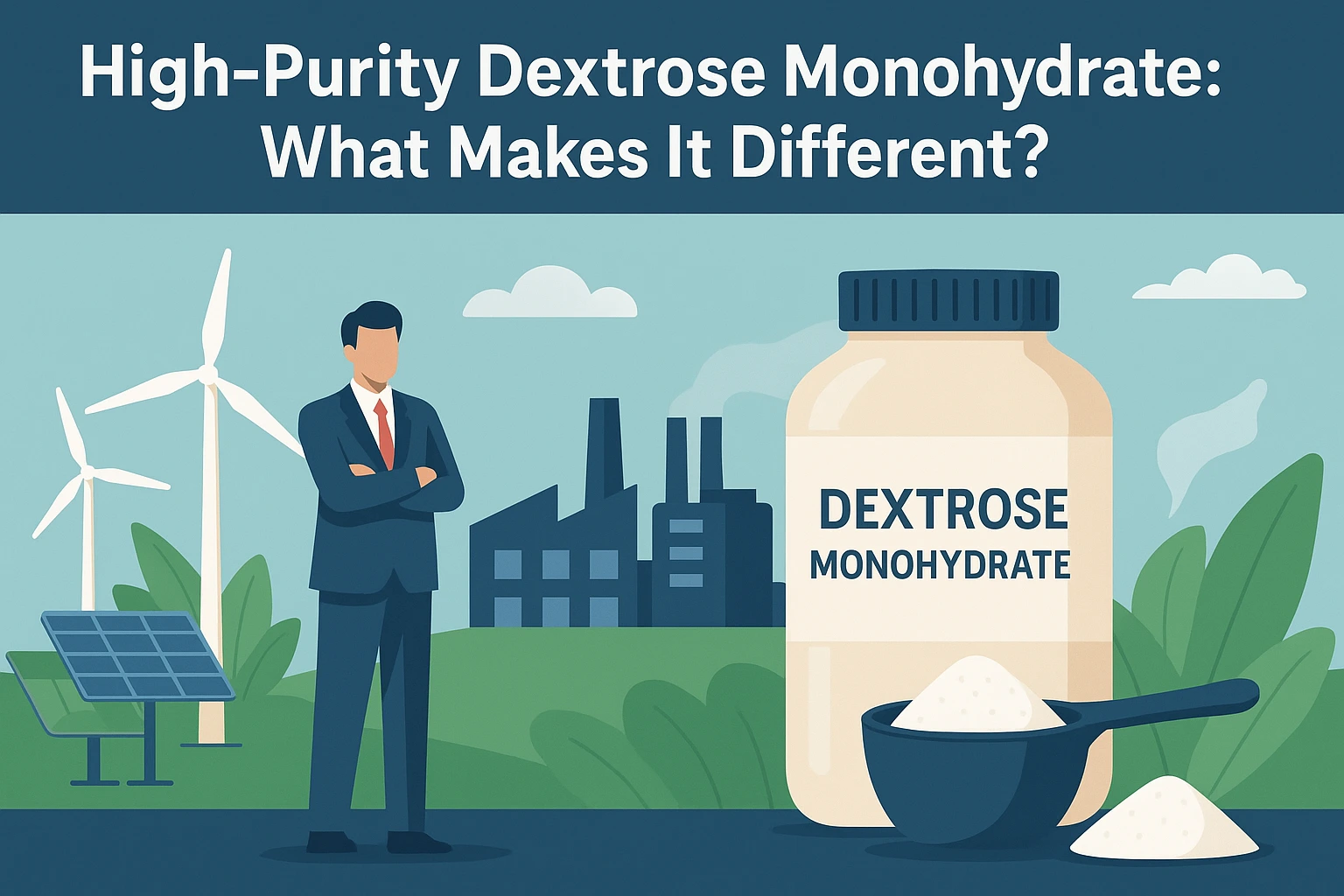Introduction: Dextrose Monohydrate Explained
Dextrose monohydrate is a crystalline form of glucose containing one molecule of water. It is known for its sweet taste, excellent solubility, and quick energy supply in human and animal diets. Used globally as a sweetener, filler, and fermentation substrate, its stable and neutral profile makes it suitable for diverse food, beverage, and pharmaceutical applications. However, not all dextrose monohydrate is the same—purity standards can dramatically impact its value and versatility.
Critical Differences in High-Purity Grades
High-purity dextrose monohydrate—often 99% or greater—differs from standard grades through advanced production and purification processes like multi-stage filtration, carbon treatment, and ion-exchange, yielding minimal impurities. Process validation research has shown that pharmaceutical-grade dextrose monohydrate, for instance, must meet rigorous compendial requirements (USP, EP, JP, Indonesian Pharmacopeia), ensuring not just chemical purity but pyrogen-free status, low endotoxin content, and consistent physical attributes. Scientific studies reveal that such purity enhances crystallization, reliability, and product stability, while warding off batch variability and contamination risk.
Benefits for Food and Beverage Applications
High-purity dextrose monohydrate is especially valued in the food and beverage sector for its fast dissolution, neutral sweetness, and absence of off-flavors or colors. It functions as a sweetener in baked goods, beverages, and dairy, and as a humectant to optimize texture and moisture retention in processed foods. Due to its reliability, manufacturers can guarantee clean labeling and allergen-free production, catering to strict market demand for quality and safety. In sports drinks and functional foods, its rapid absorption delivers immediate energy without side effects, outperforming generic sugar for athletes and clinical nutrition.
Advantages in Pharmaceutical and Lab Use
Pharmaceutical and laboratory applications require only high-purity dextrose to avoid interference from contaminants during precise drug formulation or cell culture work. Minor impurities can compromise efficacy, trigger unexpected reactions, or cause inconsistencies in experimental results. Quality-controlled dextrose ensures consistent dissolution, economical tabletting, and meets medical-grade injection prep requirements—passing strict pyrogen-free, water content, and hardness tests for safety. Pharma standards demand ongoing validation and reproducibility, both of which are only met by high-purity grades.
How to Specify and Source High-Purity Dextrose
-
Verify compliance with USP, EP, JP, or local pharmacopeia for pharmaceutical use, or FCC/WHO for food use, along with batch Certificate of Analysis.
-
Request moisture, pH, heavy metal, and microbial test results for every lot to confirm strict specs.
-
Choose suppliers supporting traceability, validated process control, and third-party audits for best-in-class material.
-
Evaluate application-specific documentation (e.g., for parenteral, fermentation, or direct food additive use) to avoid costly compliance risks or failures.
-
Assess supplier reliability based on previous batches, documented GMP, and technical consultation services.

Leave a Comment